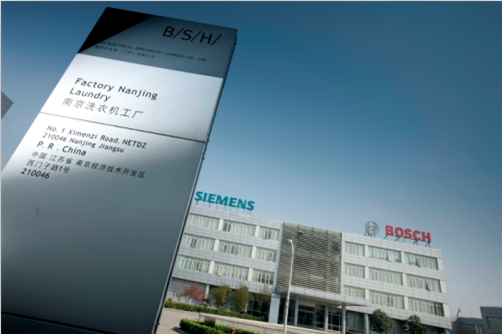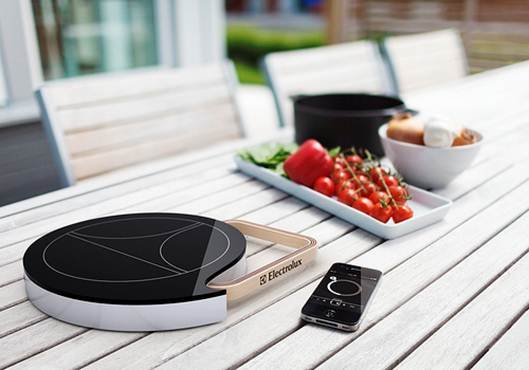OFweek smart home network news: In terms of user experience upgrade, China's home appliance manufacturing enterprises and foreign-funded enterprises follow different data utilization paths. Ou Tengbo, chairman and chief executive officer of Boxi Household Electrical Appliances Group, believes: “Chinese companies will organize a large amount of user data for analysis and make a portrait of the entire user base. The ultimate goal is also to provide users with a better experience: We are only experiencing the upgrade for a certain user."
On March 9th, the China Household Electrical Appliances Association joined seven well-known household electrical appliance companies and released the world’s first smart home appliance interconnection standard in Shanghai, marking that these mainstream home appliance manufacturers and their products in China formally entered the “Home Internetâ€. "The era of competition.
The first smart home appliance interconnection and interoperability standard is called the "cloud and cloud interconnection" standard. The main content includes user access, equipment access, service interface, equipment function model, information security and many other requirements, in addition to multiple categories of intelligence The type of application for home appliances is defined.
On March 21st, the only foreign-funded company in the above-mentioned 7 household appliances, Boxi Household Appliances Investment (China) Co., Ltd., held its 50th anniversary conference in Nanjing. After the meeting, the chairman of the Board of Directors of Boxi Household Electrical Appliances Co., Ltd. CEO Otentbo accepted an interview with a 21st Century Business Herald reporter.

“It can be said that in the future the competition core and main battlefield of home appliance companies have shifted from hardware manufacturing to algorithms based on user-uploaded data calculations.†Ou Tengbo told reporters, “Who can use this data to provide better services to users? Can be ahead of the competition."
In fact, the company that captures this trend is not only the Bossi family, nor is it just the home appliance company. Many Chinese competitors have their own understanding of this trend.
However, in an exchange with Ou Tengbo and Gerk, the reporter found that German companies have different thinking about the application scenario and data collection of smart homes in the future, and these different reflections not only reflect the choice of companies under different cultural backgrounds, It also reflects the different paths for smart home appliances in future consumer upgrades.
Algorithmic path based on user data
The clock was dialed back to the 2010 Shanghai World Expo. At that time, the reporter left a deep impression on reporters as a high school student visiting exhibition halls of different companies and countries and showing several scenes of future home life.
In less than eight years, these smart appliances based on highly developed Internet of Things and precise algorithms to provide services for users are already available in the market. Behind these, in recent years, continuous improvement of data transmission technologies and algorithms based on user data calculations have provided support for smart home appliances to eventually enter the market.
However, the uploading of large amounts of data also presents new challenges for home appliance companies. First, do these companies have the right to use such data to determine whether the power of breadth and depth of data use is in the enterprise? Second, when using certain user data, its purpose Is to serve the user or use the data to create new products; Finally, how to ensure the security of data use and interaction.
“Whether we have the right to use this data is for the user to decide, they can choose the range of data we extract.†Ou Tengbo said, “And we will not depict the image of the user group based on all user data, just for a user Experience an upgrade."
He explained to reporters that they chose different data utilization paths from Chinese companies in terms of upgrading the user experience. "Chinese companies will put a lot of user data on the analysis and make a portrait of the entire user base. The ultimate goal is to provide users with a better experience. This is just a different way of using data," he said.
In ensuring the safety of user data, he said that Bossi has done a lot of work, one of which is to obtain the safety certification of TüV. "We have hired two companies to carry out a good-faith attack on our security architecture to ensure the safety of the product itself, but the really weakest link is on the mobile phone side, this link is very easy to be compromised." He said.
No matter whether it is Bo Xi or other household electrical appliances companies, they basically chose the mobile phone as the most important interface of their home Internet. When the user experiences the smart home, how to solve the weak data protection ability of the mobile phone has become the key.
Intelligence makes the experience more complicated?
On the 21st, at the 50th anniversary of the establishment of the Boxi Group, Jiang Feng, Chairman of the China Household Electrical Appliances Association, presented a set of data. According to statistics, China’s refrigerator capacity is 410 million units, air-conditioning is 460 million units, and washing machines are 400 million units.
“According to the data on the quantity of possessions, the popularity of household appliances in China is already very high, but from other fields, there is still a lot of market space.†Jiang Feng said: “For example, dishwashers, compared with Europe and the United States, we still have Lots of development potential."
Previously, there were institutions that predicted that China would enter dishwashers in the first year of 2016. Dishwashers became the “blue sea†in kitchen appliances. According to China Yikang monitoring data, sales of dishwashers in China reached 430,000 units and sales revenue was 1.86 billion yuan in 2016, respectively 104.4% and 93.6% in the previous year.
She also said that there are some new trends in the current home appliance consumer market. "There are many newly-married families. They tend to buy whole sets of appliances and buy whole sets of appliances. This has become a new opportunity for many manufacturers."

At the same time, in the future, algorithms-based competition areas also require a large amount of user data as computing support. By collecting user data at different moments and scenes through different categories of products, companies can more accurately draw user portraits.
In this case, the more companies that can provide different home appliance categories more completely, it seems that they have more advantages in the next competition, which also stimulates home appliance companies to continuously expand their product lines and update their marketing and branding strategies.
"On the one hand, we do observe this trend of integration, which also exists on a global scale." Ou Tengbo said, "But we also found that the user's mentality in the kitchen, and in the living room or bedroom are different."
“Based on our observation in the appliance industry for 50 years, when users are in the kitchen, they need appliances to help him achieve the desired experience.†He said, “The development of these features and scenarios requires profound consumer Insight and understanding of the functional design of kitchen appliances."
As various appliances of the same brand are bought by consumers, they need a terminal--the mobile phone--to control it entirely, which means that the consumer can only control all the home appliances through the operation of the mobile phone. However, this kind of experience complicates the operation to a certain degree, but it does not necessarily lead directly to the increase of user experience.
"Intelligent machines need continuous learning. Using only one mobile phone to control all home appliances is not 'intelligence' and will only add unnecessary procedures." Xu Chengmao, Chief Digital Officer of Greater China in Bo Xi Appliances, was interviewed by this reporter. Pointed out.
Ou Teng Bo also agree with this statement, he told reporters that giving home appliances simply give WIFI links, not Bosi current practice in smart appliances. "Household appliances companies need to be responsible for the data collected, on the one hand to ensure the security of the data, on the other hand to carry out in-depth analysis of these data, give them meaning." He said.
Ceramic Tube,Alumina Ceramic Tube,Al2O3 Ceramic Bracket,Insulation Ceramic Socket
Yixing Guangming Special Ceramics Co.,Ltd , https://www.yxgmtc.com